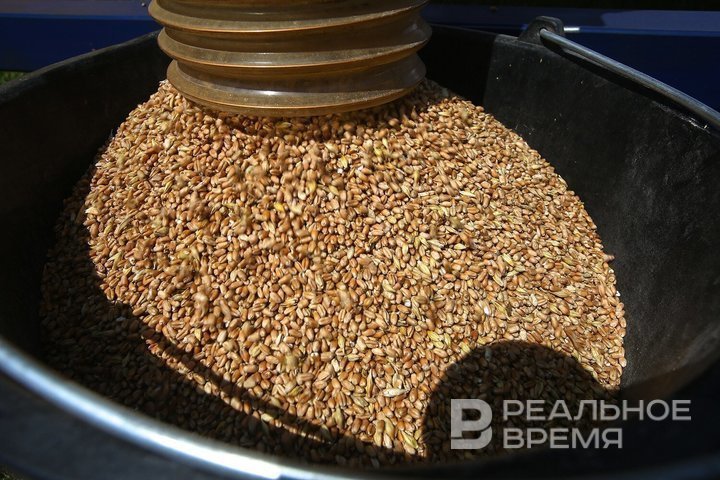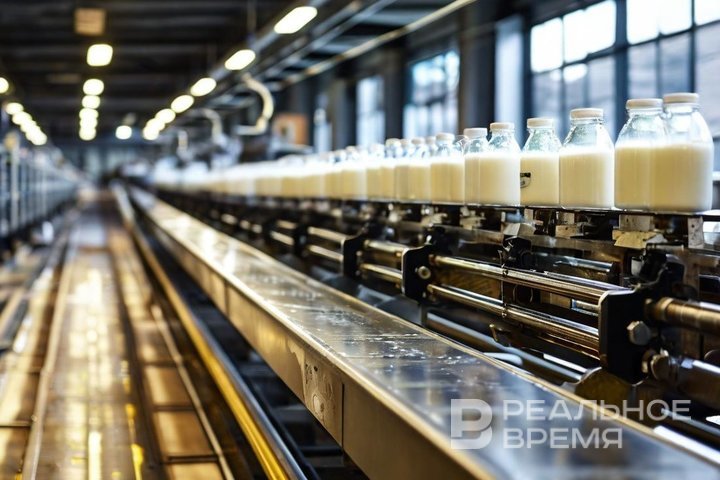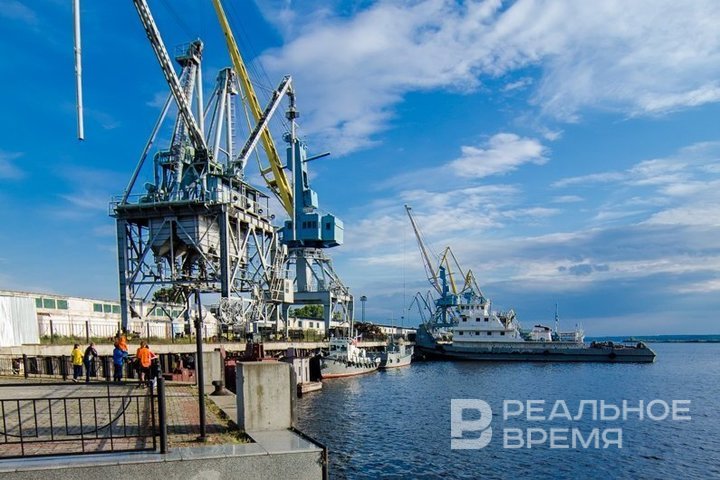Produce for a third of a trillion rubles and 4 million tonnes of grain: the year of Tatarstan farmers

Tatarstan continues to be among the top five regions in agricultural production. According to the forecast of the Ministry of Agriculture of the Republic of Tatarstan, the gross volume by the end of 2024 will grow by about 10% and reach 340 billion rubles. Due to difficult weather conditions, farmers fell short of the harvest and collected 3.9 million tonnes of grain. But they showed a record harvest of oilseeds, potatoes and — for the first time — vegetables. With 2% of the country's agricultural land, Tatarstan workers in the agro-industrial complex give the country 3.5-4% of all domestic agricultural products. New incentives for growth are promised by agricultural exports — China, Iran, the UAE and other countries have started buying Tatarstan grain.
May frosts and summer dry winds destroyed 10% of the grain harvest
Tatarstan is firmly among the main producers of grain and oilseed crops in the Volga region, according to experts from the Centre for Agroanalytics. If by the end of 2023, Tatarstan farmers collected just over 3.6 million tonnes of grain, then the current harvesting campaign brought 3.9 million tonnes to the republic's granaries.
As Dmitry Yashin, Deputy Minister of Agriculture and Food of the Republic of Tatarstan, said at a press conference, 10% of the gross harvest was lost right before the start of the grain harvest due to the vagaries of the weather.

“The sowing campaign involved 550,000 hectares for winter crops, the moisture reserves in the soil layers significantly exceeded the norm,” he said. “But before the start [of the harvest], we encountered dangerous meteorological phenomena. First, frosts occurred in some municipalities, and in the summer a dry wind broke out, a soil drought. As a result, we approached the harvest with over-moistened soil, due to which we lost 10% of the gross grain harvest before the harvest,” he explained.

As a result, the grain harvest in the republic amounted to 3.9 million tonnes, although the annual target remains 4.3 million tonnes of grain, noted Dmitry Yashin. This year, the largest areas of arable land were sown by five large agricultural holdings.
“There has never been ideal weather — it is what it is”
The leadership of the Ministry of Agriculture and Food of the Republic of Tatarstan is confident that changes in the mood of nature are not a reason to change goals. “We are used to blaming the weather or the market for our failures, but there has never been ideal weather and the market — they are what they are,” noted Minister of Agriculture and Food of the Republic of Tatarstan Marat Zyabbarov. The target of 4.3 million tonnes of grain is postponed to the 2025 harvesting campaign.
The agricultural holdings compensated for the decline in grain harvesting at the expense of oilseeds and industrial crops. According to the results of this year, twice as much sunflower was harvested — 818,000 tonnes, as well as corn — about 400,000 tonnes.

A total of about 2.5 million tonnes of grown grain are sold for domestic consumption in the republic, experts noted. Thus, about 1 million tons are processed by flour mills and cereal producers that are part of vertically integrated agricultural holdings.
Beets, potatoes, vegetables are in the black
Purchase prices for grain last year did not please villagers, which is why the sowing area in the past season slightly decreased. But by the beginning of September 2024, domestic prices rose by 7.6%. From the end of July to mid-August, prices for Russian wheat rose to 15,400 rubles per ton (including VAT) and remained at these levels until the very end of the month.
“Production of meat and milk partly saves the situation. Currently, purchase prices are at an acceptable level,” Adel Khairullin told Realnoe Vremya. “Milk prices have absorbed the negative elements that were accumulated over 2021-2023. This does not offset the costs of producers, but at least gives a positive vision for 2025.”


High yields have been achieved for beets, potatoes and (for the first time) vegetables, according to analytical data from the Institute for Agricultural Market Studies. Although the sowing area this year turned out to be smaller than last year. According to the deputy minister, this is due to the omission of the average sowing shackles in the spring.
142 ships with grain for export
New incentives for growth are promised by the export of agricultural products — China, Iran, the UAE and other countries have begun to buy Tatarstan grain. “Since the beginning of the year, products worth $400 million have been shipped for export," said Deputy Minister of Agriculture and Food of the Republic of Tatarstan Rustem Gainullov at the International Forum SPROUTS in Kazan. According to him, good prospects are associated with the PRC. “We have big plans for the Chinese market — increasing the supply of grain and processed products,” he said, adding that the initial turnover is still small and amounts to only $31 million.

This year, 142 ships with grain departed for the ports of Novorossiysk and Astrakhan with subsequent transshipment to the UAE, said Tatyana Menlikieva, director of the branch of the Centre for Assessment of Safety and Quality of Agricultural Products. According to her, the centre checks the quality of grain for compliance with the requirements of foreign countries. Currently, grain is exported to Saudi Arabia, Algeria, Iran, Turkey and African countries.
According to Russian regulations, the content of pesticides in wheat is no more than 233, and in China and the EU countries, 500 is allowed. Of course, we must check each batch so that the receiving party is calm, she noted.
In parallel, the Ministry of Agriculture of the Republic of Tatarstan is implementing several projects in the field of processing agricultural products. As Marat Zyabbarov stated, in Kukmor District, which is the leader in milk yield, modernisation of dairy plants is underway and a cheese factory is being built. In Laishevo, the construction of a complex for storing and packaging vegetables is being completed, in Bugulma, an elevator for storing grain and oilseeds is being built, and in Kaibitsy, a feed mill.